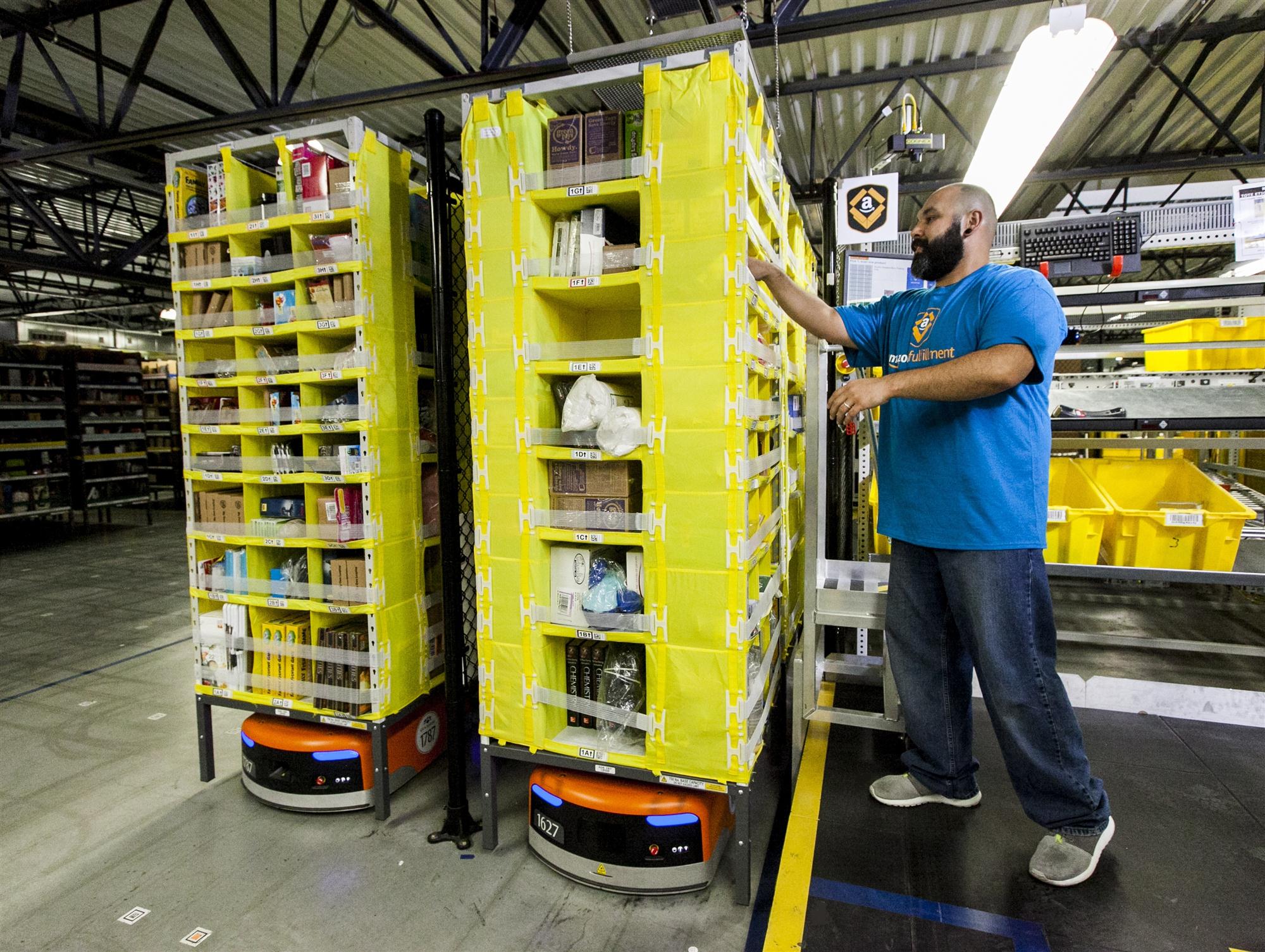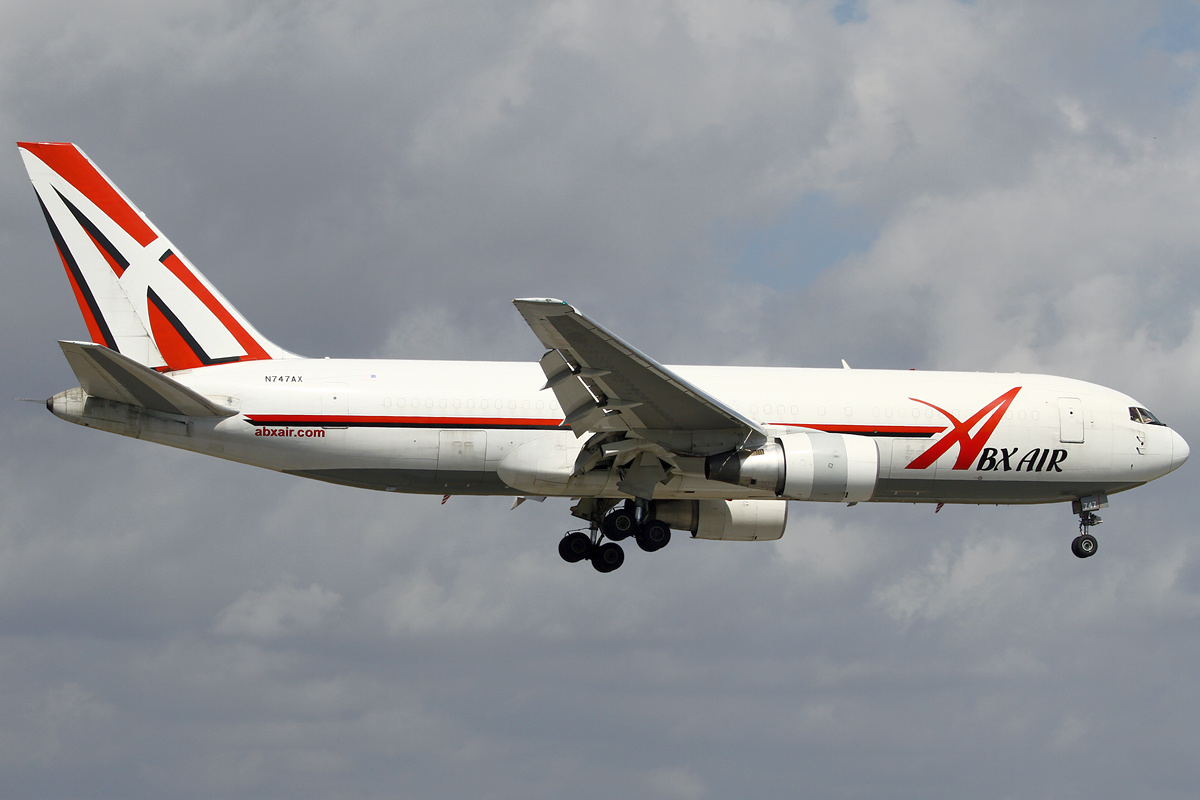Large e-tailers have been called ‘disruptors’ by retail and logistics consultants for the impact that their approach has on existing business models. Now air cargo providers are wondering how disruptive one of the biggest, Amazon, is going to be for their industry.
 Evidence is mounting that the giant e-tailer is taking steps to take firm control of the logistics in the air. Although Amazon and its partners in the logistics arena have stayed tight-lipped about this, there is little doubt that it is the mystery client behind a hub-and-spoke operation involving four Boeing 767 freighters in the US, and the latest reports indicate that Amazon is looking to get its hands on as many as 20 767 cargo planes. There are also rumours of a European trial involving 737 freighter aircraft.
Evidence is mounting that the giant e-tailer is taking steps to take firm control of the logistics in the air. Although Amazon and its partners in the logistics arena have stayed tight-lipped about this, there is little doubt that it is the mystery client behind a hub-and-spoke operation involving four Boeing 767 freighters in the US, and the latest reports indicate that Amazon is looking to get its hands on as many as 20 767 cargo planes. There are also rumours of a European trial involving 737 freighter aircraft.
Since September, Air Transport Services Group (ATSG), a provider of 767 freighters, has been running a network with four 767s centred around the erstwhile DHL hub in Wilmington, Ohio, complete with sorting activities at the airport. Emerged out of the dedicated freighter operations of DHL and Airborne Express, ATSG has ample experience in running an integrator hub-and-spoke operation, and it has the former DHL sorting hub at Wilmington to provide the accompanying work on the ground.
Rich Corrado, chief commercial officer of ATSG and president of its parent company, Airborne Global Solutions, said he was not at liberty to comment on the operation or the identity of his client. Likewise, Amazon and the airports involved in the ATSG trials (as well as other ACMI providers) have declined to comment. However, there are not many companies that have the muscle and volume to qualify for such an operation, and it has been an open secret that Amazon wants to assume control of its logistics. According to one source, this could save the company as much as US$5.5 billion.
 ATSG’s 767s have linked Wilmington with Allentown, Pennsylvania; Dallas/Fort Worth; Oakland and Ontario airports in California; and Tampa, Florida. All of these airports are located within a 90-minute trucking distance of Amazon’s key regional sortation centres, adding credence to the claims that the e-tailer is indeed the mystery client of ATSG.
ATSG’s 767s have linked Wilmington with Allentown, Pennsylvania; Dallas/Fort Worth; Oakland and Ontario airports in California; and Tampa, Florida. All of these airports are located within a 90-minute trucking distance of Amazon’s key regional sortation centres, adding credence to the claims that the e-tailer is indeed the mystery client of ATSG.
At the end of December a report emerged from Europe alleging that Amazon has been running trials for air transportation of its traffic there as well. According to this, it has worked with Germany-based multinational logistics firm DB Schenker and is using a 737 freighter linking cities in Britain, Germany and Poland. The report further stated that Amazon was looking to add more aircraft and extend the operation to Italy and Spain.
Back in North America, reports followed claiming that Amazon has been looking to get as many as 20 767 freighters for its regional air network. Besides ATSG, it has allegedly also approached ACMI providers Atlas Air and Kalitta Air. Both Atlas and Kalitta are traditional 747 operators that have been extending their platforms more recently to include 767 cargo planes.
This would suggest that the trials around Wilmington have gone sufficiently well to convince Amazon top brass that it is viable to set up a full air network for the US market.
In the absence of any disclosure from the company, the industry is left to speculate how far its involvement in an air operation is going to go. Theoretically it could set up its own dedicated airline, which conceivably might look beyond the company’s own traffic to fill its capacity. At least for the near future, however, the more likely scenario would be for Amazon to concentrate squarely on its own volume, which could be achieved at a lower cost through a farmed-out operation.
“Amazon will not become an airline,” reckoned Stan Wraight, executive director of Strategic Aviation Solutions International. Nevertheless, the impact of a dedicated air network on the express industry would be massive, first and foremost for the integrated express carriers, whose volumes have surged on the strength of B2C e-commerce growth, not least of all volumes carried for Amazon.
Every step taken by the e-tailer is scrutinized for signs of management’s logistics plans. In 2014 it acquired a 25% stake in French package delivery company Colis Prive. Parcel operators are wondering how far this would go to take care of Amazon’s package logistics in Europe, and secondly if it might eventually look beyond its own traffic to chase other volumes.
It remains to be seen how disruptive Amazon is going to be in the logistics sector, but it clearly is a factor that no operator can ignore. And Amazon is not the only giant e-tailer.
By Ian Putzger
Air Freight Correspondent | Toronto




